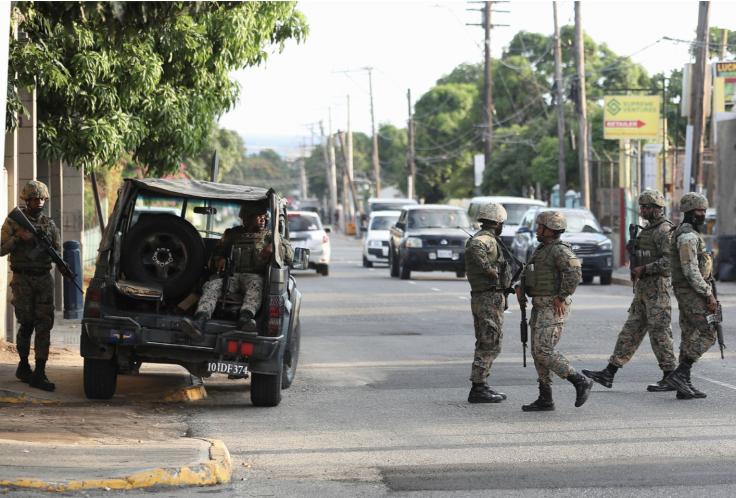Jamaica Issues Sweeping State Of Emergency To Deter Violent Crime
Jamaican Prime Minister Andrew Holness issued a state of emergency Wednesday in nine of 14 of Jamaica's parishes to deter violent crime.
The nine parishes include Clarendon, Saint Catherine, Westmoreland, Hanover, and parts of Kingston, Saint Andrew, Saint Ann, and Saint James, which encompasses the popular tourist destination Montego Bay.
"We will continue to be relentless on all fronts to combat this epidemic that we have of crime and violence," Holness posted on Twitter.
My job as your Prime Minister is to ensure that my people are safe, and I will not stop until that is achieved.
— Andrew Holness (@AndrewHolnessJM) December 7, 2022
We will continue to be relentless on all fronts to combat this epidemic that we have of crime and violence. pic.twitter.com/Tae9LWi7er
"All Jamaicans should be able to enjoy the Christmas season free from the threat of violence. We have some really serious criminal threats facing us, and we have to use all the powers at our disposal," Holness said.
The sweeping state of emergency will allow authorities to arrest people and search buildings without a warrant.
Jamaica has one of the highest murder rates in the Caribbean. The island's 2.8 million people reported 1,421 killings in 2022, a spokesman with Jamaica's Constabulary Force told the Associated Press.
Holness previously issued a state of emergency on Nov. 15, but it ended on Nov. 29 after it failed to pass in the Senate, prompting the prime minister to reissue the order Wednesday.

"We have to ensure that our homicide rate and the level of violence that citizens experience on a daily basis does not get to the point where it threatens to collapse the state," Holness added in his address.
The move was met with backlash from the public and opposition politicians, according to CNN. Holness addressed the criticism in his public address, stating: "That is all the government is trying to do," he said. He added that Jamaicans "have to hide under their beds, hide their daughters, can't go to church, and they see their sons, their boyfriends, and husbands killed. That's the reality."
According to Jermaine Young, an expert on emergency powers and former professor at Howard University, Jamaica has a history of abusing power with its state of emergencies
"Jamaica has a sordid reputation for abusing emergency powers," Young wrote in an academic essay published this month. The police and military "have engaged in practices that include arbitrary and unlawful mass extended detentions, extrajudicial killings and internal renditions."
Despite criticism, authorities are defending the move. Police Chief Major General Anthony Johnson said there was a 64% decline in killings during the two-week state of public emergency last month, according to the AP.
© Copyright IBTimes 2025. All rights reserved.





















